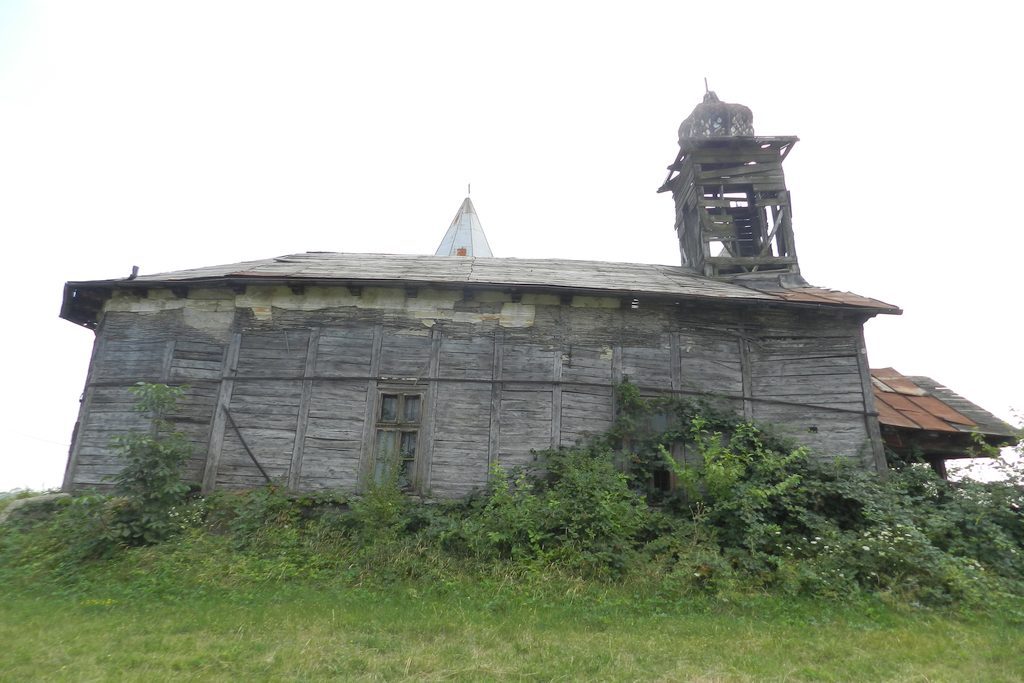

Saint Nicholas Wooden Church was built in the second half of the 19th century.
The historical monument is not preserved. Located in the center of town on a large plate, a new church being built near it during this time, dedicated to the same saint.
The wooden church, raised in 1909 is the second in size of those left standing. The later repairs didn’t affect its architectonic status. The church was deprecated due to the damage to its foundation. The church objects are moved to the new church.
The paintings are also kept, the altar screen and a very beautiful chandelier. The verandah is degraded. The top of the steeple is covered in scaly tin. In the old cemetery there are two sculpted pillars and timbers of the wooden church built in 1804, declared a monument in 1955.
Dumbrava is a small town in Mehedinți County, Oltenia, România, comprised of villages Albulești, Brâgleasa, Dumbrava de Jos (capital), Dumbrava de Mijloc, Dumbrava de Sus, Golineasa, Higiu, Rocșoreni, Valea Marcului, Varodia and Vlădica.
According to the 2011 census, the population of Dumbrava amounts to 1574 inhabiltants, decreased from the previous one from 2002, when there were 1932 residents.
Most of the residents are Romanians (96,19%). For the 3.75% of the population, the ethnic group is unknown. Regarding their religion, most residents are orthodox (96,25%). For the 3.75% of the population, the religious group is unknown
One of the local figures is Alexandru Boboc, Romanian philosopher, tenured member of the Romanian academy as of 2012. He is a philosophy history specialist (specifically of modern and contemporary philosophy). Preferred fields: philosophy history; values and culture philosophy, semiotics and language philosophy.
After graduating from the Philosophy Faculty of the Bucharest University (1957), he was assigned to the Philosophy history department of aid Faculty, having the teaching titles of assistant and lector, associate professor and from 1972 tenured professor.
From 1964 (September) he taught classes of Contemporary philosophy history, then from 1976 also taught classes of modern philosophy and cultural philosophy. Between 1991 and 2002 he participated (with classes and conferences) in the collaboration with the Sciences Academy in Chişinău and education institutions from Moldova. The Economic Right and Audiovisual arts international academy from Chişinău granted him the „Doctor Honoris Causa” title in April 1998. His activity (didactical and for research) was focused on studying the great modern and contemporary philosophizers: in courses and special seminars (Descartes, Leibniz, Kant, Hegel, Kierkegaard, Schopenhauer, Nietzsche, Dilthey, Husserl, Scheler, N. Hartmann etc.);in translations (German and French); in profile works for the needs of the educational system and the general population.
